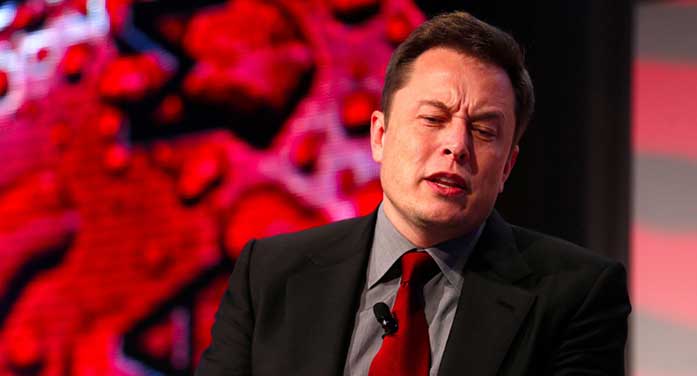 Last week’s Troy Media column asked: “Can Elon Musk’s bid for Twitter succeed?”
Last week’s Troy Media column asked: “Can Elon Musk’s bid for Twitter succeed?”
We now have an answer: Yes, it can.
On Monday afternoon, it was announced that Musk will buy Twitter for US$44 billion. Investors will receive US$54.20 for each share, which is 38 per cent higher than the publicly-traded company’s share value close on April 1.
The deal still has to be finalized for the microblogging/social networking platform, founded by Jack Dorsey, Noah Glass, Biz Stone and Evan Williams in 2006. If everything goes according to plan, Musk will take it private.
Most importantly, he’ll ensure that Twitter remains a bastion for free speech.
“Free speech is the bedrock of a functioning democracy, and Twitter is the digital town square where matters vital to the future of humanity are debated,” the billionaire entrepreneur tweeted after the deal was announced. “I also want to make Twitter better than ever by enhancing the product with new features, making the algorithms open source to increase trust, defeating the spambots, and authenticating all humans.”
For anyone who truly believes in freedom of speech, it’s an enormous victory.
This cherished principle in liberal democratic societies has been under constant attack by radical leftists in recent years. Most of them neither understand, nor care to understand, why it’s vitally important to preserve it at all costs.
To summarize, free speech is the defence of ideas that are either objective or objectionable. We must be willing to support views that appear right to us and tolerate views that seem wrong to us. It doesn’t mean we’re required to agree with different points of view, but we must always defend a person’s right to make their views heard in a non-violent manner.
Anything less than these parameters must be regarded as a rejection of free speech.
If you believe in putting even the slightest number of conditions on a person’s speech, you’re restricting the freedom of those who wish to promote alternative ideas, thoughts and opinions. It establishes a baseline of limitations on everything from intellectual discourse to lighthearted conversations. It allows thin-skinned individuals and groups to shut others down – and, in some cases, cancel them altogether.
That’s how the toxic environment known as ‘cancel culture’ came to be.
Twitter initially rejected the radical left’s all-consuming fascination with censorship of individuals and ideas. Alas, it gradually succumbed to these Medusa-like charms.
The starting point came just after the 2020 U.S. presidential election. Twitter users were being moderated, as well as temporarily and permanently suspended, at a furious pace. While there had been previous episodes of de-platforming on Twitter, this strategy was something new. Most of the bans targeted right-leaning individuals and groups, and prominent individuals like former U.S. President Donald Trump were part of this purge.
Last November, Dorsey stepped down as Twitter’s CEO and was replaced by Parag Agrawal. Dorsey’s successor had a very different attitude when it came to protecting free speech.
“Our role is not to be bound by the First Amendment,” Agrawal told MIT Technology Review in a November 2020 interview, “but our role is to serve a healthy public conversation and our moves are reflective of things that we believe lead to a healthier public conversation. The kinds of things that we do about this is to focus less on thinking about free speech, but thinking about how the times have changed.”
Coming to terms with the politics of self-righteousness by Ken Coates
The problem is neither the ideas nor the rhetoric, but simply the blatant determination to silence critics
The Internet’s progeny undermining democracy’s foundations by Warren Kinsella
What happens when Facebook and Twitter are permitted to cheerfully provide a platform for hatred and lies
Things have been getting progressively worse on Twitter.
In the most recent example, there would be a ban on advertisements that deny climate change. “We believe that climate denialism shouldn’t be monetized on Twitter,” the company announced last Friday, Earth Day, “and that misrepresentative ads shouldn’t detract from important conversations about the climate crisis. We recognize that misleading information about climate change can undermine efforts to protect the planet.”
This was yet another example of Twitter clamping down on free speech. Instead of encouraging people to debate this issue, one side would simply be eliminated from the discussion. If you think a one-sided discourse helps promote healthy debate, then you need to give your head a shake.
Musk has a real opportunity to change Twitter’s toxic culture. By championing free speech on his new acquisition-to-be, he’ll open eyes and ears to different ideas and thoughts. It will help revive intellectual discourse and, hopefully, make it less of a sewer and echo chamber.
Will some people leave Twitter in protest of Musk’s ownership and direction?
It appears so but they shouldn’t. “I hope that even my worst critics remain on Twitter,” Musk tweeted on Monday, “because that is what free speech means.”
He’s absolutely right. Hopefully, they’ll listen.
Michael Taube, a Troy Media syndicated columnist and Washington Times contributor, was a speechwriter for former prime minister Stephen Harper. He holds a master’s degree in comparative politics from the London School of Economics. For interview requests, click here.
The opinions expressed by our columnists and contributors are theirs alone and do not inherently or expressly reflect the views of our publication.
© Troy Media
Troy Media is an editorial content provider to media outlets and its own hosted community news outlets across Canada.


